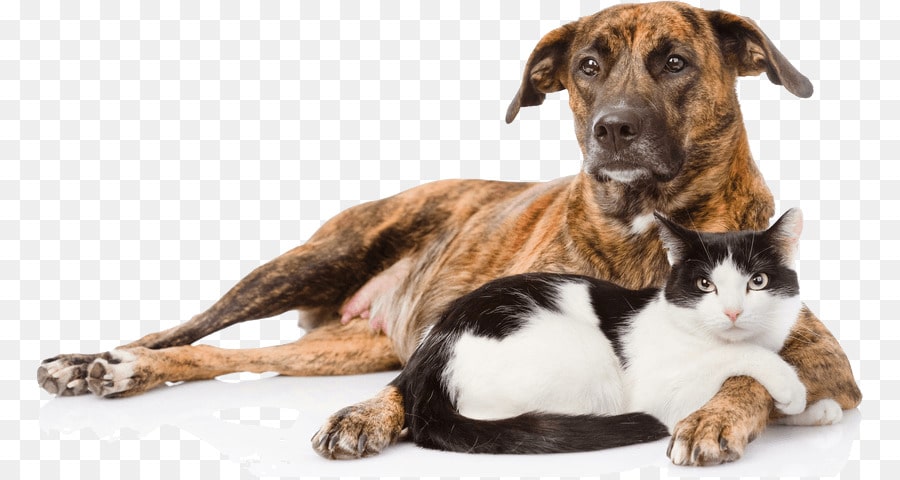After having spent so much time with your pets during community quarantine, you should prepare for your pets’ separation anxiety when you go back to work.
Happy together
You and your pet have been inseparable throughout the pandemic. For you, your pet is a welcome distraction while working from home. For your pet, it’s a moment to treasure as they lie on your lap while you answer your emails. Moments like this strengthens the bond between pet parents and their pets and is known as the “secure base effect.”
Secure base effect
Mostly evident in dogs, the secure base effect is “similar to that found in human children.”[1] It’s like children gravitating to their caregiver, using them as “a base for interacting with their environment.”[2] This attachment is strengthened further when pet parents “develop stronger bonds with their pets similar to that of a parent and their infant child.”[3]
According to an article in Indepent.com, “Pets give people so much in terms of love and emotional support. Simply stroking a dog, cat, rabbit, or even horse can lead to lower blood pressure and can combat stress.” The article further says that these feelings are returned by our pets, as our touch has therapeutic effects on them too.
So don’t be surprised if your pets will have separation anxiety once you go back to work.
Separation anxiety in dogs
Dogs that have grown attached to their humans get overly stressed when they get separated. They are “fearful that you can’t handle it out there.”[4] Your dogs feel anxious because they feel that “they need to be out there with you”[5]. If your dog is alone and separation anxiety begins to overtake him, he might do the following:
- Excessive howling, barking or whining
- Indoor “accidents” even if your dog’s been housebroken
- Chewing things, digging holes, scratching at windows and doors
- Excessive drooling, panting
- Pacing frequently in a pattern
- Trying to escape
Your dog won’t do any of these things when you’re around. But a dog with separation anxiety will do them when left alone.
Separation anxiety in cats
Cats aren’t as obvious about separation anxiety as dogs may be. It’s much more difficult to see the signs until they become severe. Here are some signs you have to watch out for:
- Excessive and loud meowing
- Indoor “accidents” which might include your bed
- Excessive licking and self-grooming
- Eating too fast or not eating at all
- Clinginess
- Vomiting and diarrhea
- Isolating themselves
What to do
There are numerous ways veterinarians treat separation anxiety. One of them is behavior modification. For example, you may train your pets to get used to your absence.
- Identify the triggers of their anxiety. It can be when you get your keys or your coat. It can be when you start wearing your shoes. When your pets get anxious by any of these triggers, do not leave immediately. Pick up your keys and have a cup of coffee. Or slip on your shoes then watch TV.
- Gradually disappear. When your pets get less anxious about these triggers, start to gradually disappear for a time. First stay on the other side of the door for around a minute. Then reappear. Do the same but increase the amount of time you are gone. Always make sure that your pets are quite settled when you leave them.
- Reward them for behaving well. Make this exercise rewarding for your pets. Every time you reappear, give your canine pets dog treats. For your feline pets, cat kibbles may do. You may want to also check out our Nutrition Advisor to see what pet food is suitable for your pets. Do not forget to consult your veterinarian if their separation anxiety seems to be getting out of control.
Addiction Foods has gone further to promote pet health by producing and distributing pet foods under strict safety measures. Your favorite pet food brands will still be available at your local store. Stay safe and shop responsibly. Avail of contactless online delivery with our online retail partners in New Zealand, Singapore, or the USA.
Like us on Facebook and follow us on Instagram for more pet health and nutrition updates.
References:
1. https://journals.plos.org/plosone/article?id=10.1371/journal.pone.0065296#pone.0065296.s004
2. https://www.medicaldaily.com/dogs-become-attached-their-owners-much-same-way-infants-their-caregivers-247060
3. ibid.
4. https://www.dogfoodinsider.com/become-a-pack-leader/
5. ibid.
For further reading:
1. https://www.washingtonpost.com/science/2020/05/11/coronavirus-pets-behavior/
2. https://petcube.com/en-nz/blog/cat-separation-anxiety/
3. https://pets.webmd.com/dogs-separation-anxiety#1
4. https://www.aspca.org/pet-care/dog-care/common-dog-behavior-issues/separation-anxiety
5. https://www.cesarsway.com/dealing-with-dog-separation-anxiety/











